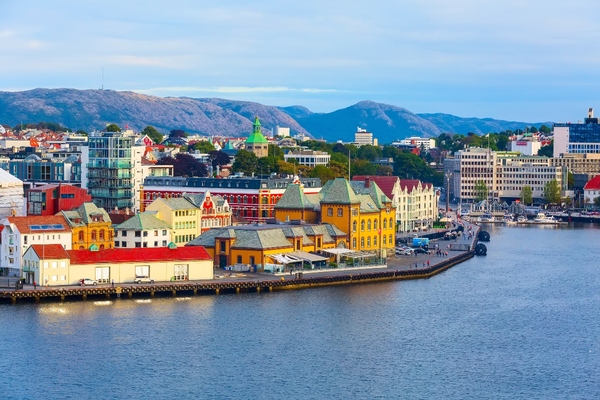EC shortlists demonstrator projects for New European Bauhaus
The projects, spread across 13 countries, aim to create more sustainable, inclusive, and beautiful spaces in locations in the EU and will involve citizens in the green transition at the local level.
Smart cities, building renovation, circularity and urban and rural regeneration are among the focus areas of the shortlisted lighthouse demonstrator projects chosen by European Commission (EC) for the New European Bauhaus (NEB).
The projects aim to create more sustainable, inclusive, and beautiful spaces in locations across the EU and will involve citizens in the green transition at the local level. The New European Bauhaus aims to bridge the worlds of art, culture and education with science and technology.
As the projects spread across Europe, they will provide a diversity of results that can be adapted and replicated in similar activities and demonstrators in Europe and beyond, helping to inspire future projects.
Major challenges
The projects will also contribute to the EU Missions, which aim to tackle major challenges in health, climate and environment through closer engagement with citizens, and harnessing the power of research and innovation.
“I cannot wait to see these New European Bauhaus projects come to life,” said president Ursula von der Leyen. “They will show how the future can look and bring the European Green Deal to our daily lives and living spaces. These projects should become the starting point for a European and worldwide network of New European Bauhaus projects.”
The shortlisted projects will receive funding of approximately €5m each to implement their plans in 11 member states of Belgium, Czechia, Germany, Denmark, Greece, Croatia, Italy, Latvia, Netherlands, Slovenia, and Portugal, as well as in Norway and Turkey.
The selected projects are:
Cultuurcampus: a sustainable hub of arts, research, learning and community. Through blending education, research, policy, and culture, and considering the lived experiences of its residents, Cultuurcampus aims to transform the disadvantaged urban area of Rotterdam South in the Netherlands. The Cultuurcampus will be in a historical building and will act as a hub for different groups and activities.
“These projects should become the starting point for a European and worldwide network of New European Bauhaus projects”
New European Bauhaus STAvangeR (NEB-Star): NEB-Star will showcase how territorial transformation plans can incorporate the principles and values of the NEB in Stavanger, Norway, Prague, Czechia, and Utrecht, Netherlands. The project will tackle four emblematic challenges linked to climate-neutral cities, all considering local needs and concerns through co-creation with residents and stakeholders.
NEBhourhoods (NEBhourhoods): NEBhourhoods prepares Munich-Neuperlach in Germany for the future as mapped out by the European Green Deal when it comes to the built environment, circularity, mobility, energy, food, and health. The project will build on the area’s strengths – a strong sense of community, vast green areas, large-scale housing, even if in need of renovation – and address its weaknesses, which include higher than average unemployment and lower than average education levels.
Eyes Hearts Hands Urban Revolution (EHHUR): the project supports cities and vulnerable residents in transforming their built environment. Spread across seven different locations in the EU and associated countries, it will seek to tackle socio-economic and cultural challenges such as social segregation, energy poverty, and degradation of depopulated historical centres.
Another project, the CReating Actionable FuTures (Craft), will support all five selected projects, as well as future NEB lighthouse projects, with €2m in funding. Craft will test collaborative local models for NEB transformations in the three sandbox cities of Amsterdam, Bologna and Prague and guide the 100 cities selected under the Climate-Neutral and Smart Cities’ Mission.
The announcement of the successful applicants does not constitute a formal commitment for funding. The final decision on the applicant projects (including the grant amount to be awarded) can be taken only later, when the commission services have finalised the grant preparation and all the necessary checks.
- climate action
- Climate change/Resilience
- Cultural space
- demographic change
- Economy and finance
- Energy & Environment
- Governance and Citizen
- inclusivity
- urban space




Leave A Comment